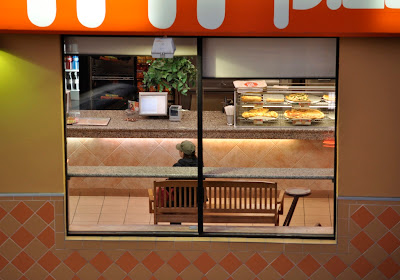We think that if we just meditated enough or jogged enough or ate perfect food, everything would be perfect. But from the point of view of someone who is awake, that's death. Seeking security or perfection, rejoicing in feeling confirmed and whole, self-contained and comfortable, is some kind of death. It doesn't have fresh air. There's no room for something to come in and interrupt all that. We are killing the moment by controlling our experience. Doing this is setting ourselves up for failure, because sooner or later, we're going to have an experience we can't control: our house is going to burn down, someone we love is going to die, we're going to find out we have cancer, a brick is going to fall out of the sky and hit us on the head.... The essence of life is that it's challenging. Sometimes it is sweet, and sometimes it is bitter.
 |
| Life and death are always with us. |
Life is full of fragility and vulnerability; life and death, and that can be a gift or it can be destructive. We get to choose how we will view these aspects of being alive, we don't get to avoid them.
*Chodron, Pema: When Things Fall Apart: Heart Advice for Difficult Times, Boston, Shambhala, 1997.
